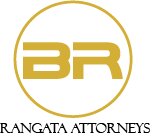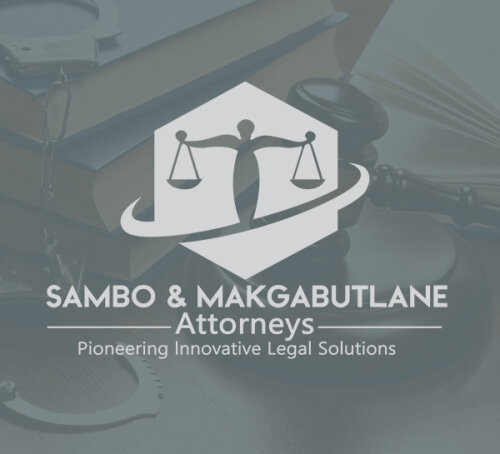Best Renewable & Alternative Energy Lawyers in Pretoria
Share your needs with us, get contacted by law firms.
Free. Takes 2 min.
List of the best lawyers in Pretoria, South Africa
About Renewable & Alternative Energy Law in Pretoria, South Africa
Pretoria is the administrative capital of South Africa and an important hub for renewable and alternative energy initiatives. As the country strives to diversify its energy mix, legal frameworks governing renewable and alternative energy sources are evolving rapidly. Renewable and alternative energy law in Pretoria regulates the development, installation, and operation of energy systems utilizing solar, wind, hydropower, biomass, and other sustainable sources. These laws support South Africa’s commitments to reduce greenhouse gas emissions, ensure energy security, and attract investment into clean technologies. Legal requirements address everything from licensing and compliance to land usage and environmental impacts.
Why You May Need a Lawyer
There are several reasons why individuals and businesses in Pretoria may need legal assistance related to renewable and alternative energy. If you plan to develop, finance, or operate a renewable energy project, you must comply with numerous regulatory requirements. Property owners may face legal questions about installing solar panels or wind turbines on their land, while companies participating in public procurement for energy supply may require help navigating complex tenders. Legal challenges can also arise regarding permits, power purchase agreements, land rights, environmental authorizations, and community consultations. A lawyer can help ensure you meet all legal obligations, protect your interests, and avoid costly disputes.
Local Laws Overview
In Pretoria, renewable and alternative energy is governed by a combination of national legislation and municipal by-laws. Key national laws include the Electricity Regulation Act, the National Energy Act, the Integrated Resource Plan (IRP), and the Renewable Energy Independent Power Producer Procurement Programme (REIPPPP). These laws set the framework for energy generation, licensing, and grid access. Environmental compliance is regulated under the National Environmental Management Act and its regulations, which require environmental impact assessments for certain projects. The City of Tshwane, under which Pretoria falls, has its own by-laws and policies influencing renewable energy initiatives, building approvals, and connection to the municipal power grid. Zoning laws and property rights may also play a role, particularly when installing infrastructure on private or communal land.
Frequently Asked Questions
What qualifies as renewable or alternative energy in Pretoria?
Renewable and alternative energy includes energy derived from sources like solar, wind, hydropower, biomass, and geothermal. These sources are sustainable and have a lower environmental impact compared to fossil fuels.
Do I need a license to install solar panels at my property?
Small-scale solar installations for personal use typically do not require a generation license but must comply with City of Tshwane safety and building regulations. Larger systems, especially those feeding electricity back into the grid, may require a license or registration.
What environmental approvals are needed for renewable energy projects?
Most commercial renewable energy projects require an environmental impact assessment under national law. This process evaluates the potential environmental effects and determines necessary mitigation measures.
How can I sell excess electricity back to the grid?
In Pretoria, property owners may be able to connect their renewable energy systems to the municipal grid and sell excess power, subject to technical requirements, agreements with the City of Tshwane, and compliance with metering standards.
Are there financial incentives for renewable energy adoption?
Various government programs and financial incentives may be available to support renewable energy adoption, including tax benefits and grants. Availability and details depend on current government policy and project type.
What are power purchase agreements and why are they important?
A power purchase agreement (PPA) is a contract between an electricity generator and a buyer. PPAs are essential for securing investment in renewable energy projects by providing revenue certainty and defining the terms of energy sale.
Do zoning laws affect renewable energy installations?
Yes, zoning laws and land use permissions can impact where and how renewable energy installations are developed. Certain locations may have restrictions or require specific permits.
What legal issues can arise with community or shared energy projects?
Community energy projects may involve legal complexities around shared ownership, management, profit sharing, and community engagement, making clear agreements essential.
How do I participate in government renewable energy procurement programs?
Participation in programs like the REIPPPP requires compliance with strict qualification criteria, bid preparation, and legal documentation. Legal advice can improve your chances of a successful bid.
What are the risks of non-compliance with renewable energy laws?
Non-compliance can result in fines, project delays, or orders to stop operations. In severe cases, it may lead to criminal liability or expensive legal disputes.
Additional Resources
Several organizations and authorities can assist those involved in renewable and alternative energy in Pretoria:
- Department of Mineral Resources and Energy (DMRE) - oversees national energy policy and regulatory frameworks - National Energy Regulator of South Africa (NERSA) - issues licenses and monitors compliance - Department of Environmental Affairs - regulates environmental compliance for energy projects - City of Tshwane Metropolitan Municipality - manages local approvals, by-laws, and electricity supply services - South African Photovoltaic Industry Association (SAPVIA) - offers information and resources relevant to solar energy - Independent Power Producers Office (IPPO) - administers government renewable energy procurement
Next Steps
If you need legal advice or assistance with a renewable or alternative energy matter in Pretoria, consider the following steps:
1. Identify your specific legal issue, such as licensing, compliance, contracts, or land use. 2. Gather relevant documents including project plans, correspondence, permits, or agreements. 3. Research legal professionals specializing in renewable and alternative energy law in Pretoria. 4. Schedule consultations to discuss your needs and clarify potential costs. 5. Follow your lawyer's guidance to ensure compliance, protect your interests, and facilitate successful project development or dispute resolution.
Taking early legal advice can save time and money, reduce risks, and help you navigate the complex and dynamic regulatory landscape of renewable and alternative energy in Pretoria.
Lawzana helps you find the best lawyers and law firms in Pretoria through a curated and pre-screened list of qualified legal professionals. Our platform offers rankings and detailed profiles of attorneys and law firms, allowing you to compare based on practice areas, including Renewable & Alternative Energy, experience, and client feedback.
Each profile includes a description of the firm's areas of practice, client reviews, team members and partners, year of establishment, spoken languages, office locations, contact information, social media presence, and any published articles or resources. Most firms on our platform speak English and are experienced in both local and international legal matters.
Get a quote from top-rated law firms in Pretoria, South Africa — quickly, securely, and without unnecessary hassle.
Disclaimer:
The information provided on this page is for general informational purposes only and does not constitute legal advice. While we strive to ensure the accuracy and relevance of the content, legal information may change over time, and interpretations of the law can vary. You should always consult with a qualified legal professional for advice specific to your situation.
We disclaim all liability for actions taken or not taken based on the content of this page. If you believe any information is incorrect or outdated, please contact us, and we will review and update it where appropriate.
















